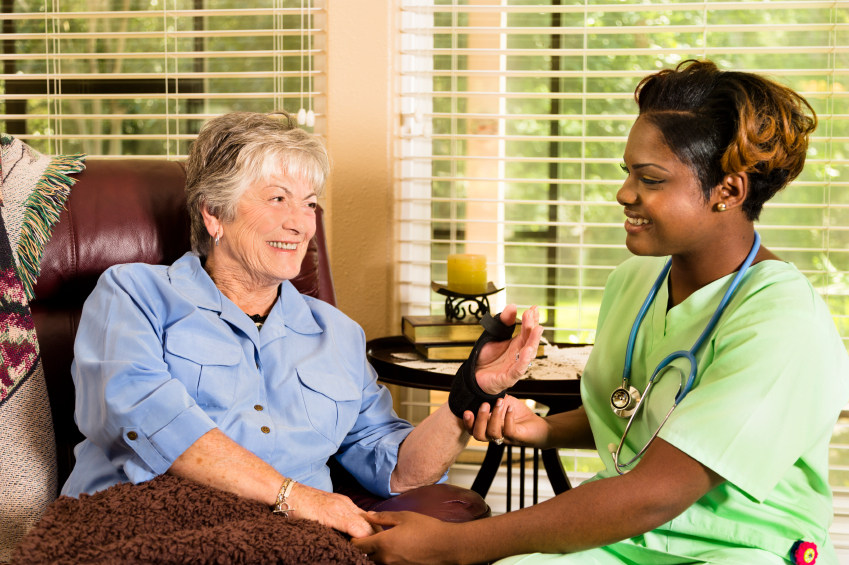Marcus Pickett
After a serious illness, many patients rejoice at the idea of leaving the hospital and going home. An increasing number of patients, however, are avoiding long hospital stays altogether by being cared for at home.
While your home may seem like a more comfortable and supportive environment than a hospital, at-home health care comes with a variety of challenges for patients and caretakers, according to a July 2011 report from the National Research Council. Navigating these challenges is vital in making home health care work for you.
More patients staying home
Home health care is on the rise for a variety of reasons, according to the Research Council. The length of hospital stays have been decreasing over the years, meaning that patients are being discharged with a continuing need for complex care. Moreover, the population is aging. Medicare does not pay for long-term care in a nursing home, according to the U.S. Department of Health and Human Services. It pays only for medically necessary skilled nursing care. So those who are too sick to care for themselves but too “healthy” for skilled nursing care may have to rely on people who can care for them at home.
The challenges of staying home
Given the increase of at-home health care, it’s important to address the challenges that come along with it, according to the Research Council:
- Medical equipment designed for hospitals may not be practical for use at home. Particularly heavy or bulky equipment may not even fit.
- Informal caregivers (friends, family and neighbors) may not have the right training. If you do have health care professionals visiting your home to supplement your care, you’ll need to make sure they and your network of informal caregivers are coordinated. Properly balancing the costs of formal caregivers and the lack of experience of informal caregivers is critical in carrying out a successful home health care regimen.
- A home may need renovations to make it accessible to someone with mobility problems.
- Transportation to medical appointments can be expensive, especially if you are in a wheelchair.
Insurance coverage
Insurance complications are some of the biggest obstacles to home health care. Medicare pays only for medically necessary skilled nursing care. That means it won’t compensate informal caregivers financially for their time. And it won’t pay for a professional to help you eat, bathe and dress.
Private health insurance is limited as well. Aetna, for example, will cover at-home home skilled nursing care only under these circumstances:
- You are completely housebound, and the only reason you leave home is to receive medical care.
- The care you receive is not for comfort, but for medical necessity.
- The services are ordered by a physician.
- The care you receive is for an active condition that would otherwise be treated in a hospital.
- The care you receive is intermittent and on an hourly basis. In other words, your health insurance won’t pay for someone to live with you.
Long-term care insurance is the kind of coverage you would need to pay for day-to-day custodial care. It also will pay for home modifications and transportation to medical appointments.
Making it work
Despite the complications, at-home care is necessary — and often preferable — for many. The Research Council report contains the following recommendations for making it safe:
- Improving technology: The report recommends that the U.S. Food and Drug Administration and the Office of the National Coordinator for Health Information Technology create standards for adapting medical equipment to at-home use.
- Training for caregivers: The Research Council advocates for more targeted certification for formal home caregivers — and better training for informal caregivers.
- Home improvements: Many can’t afford to remodel their homes for at-home health care, and federal aid is limited. For the federal funding that is available, the goals should be home assessments, home modifications and training for the use of those modifications, according to the report.
- Research and development: Health care providers need to become better educated about at-home health care, according to the report. They need to know how to coordinate with other providers, leverage support services and recommend the right medical equipment to help patients get the care they need.
